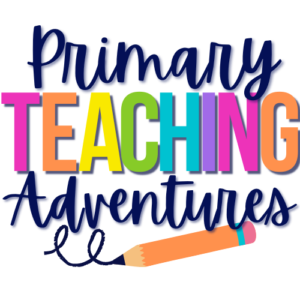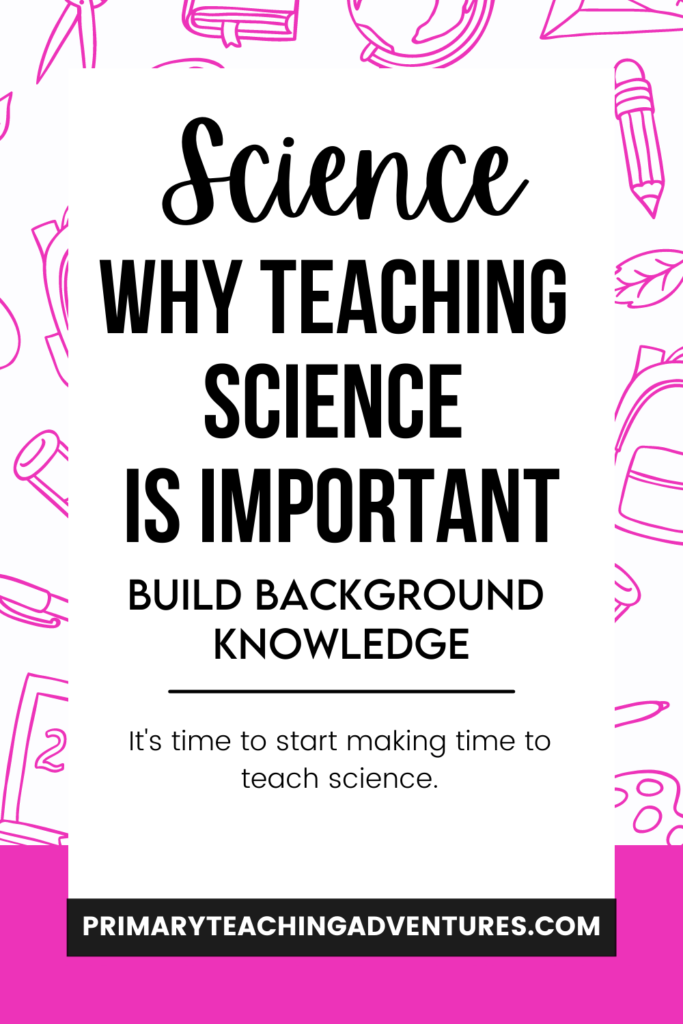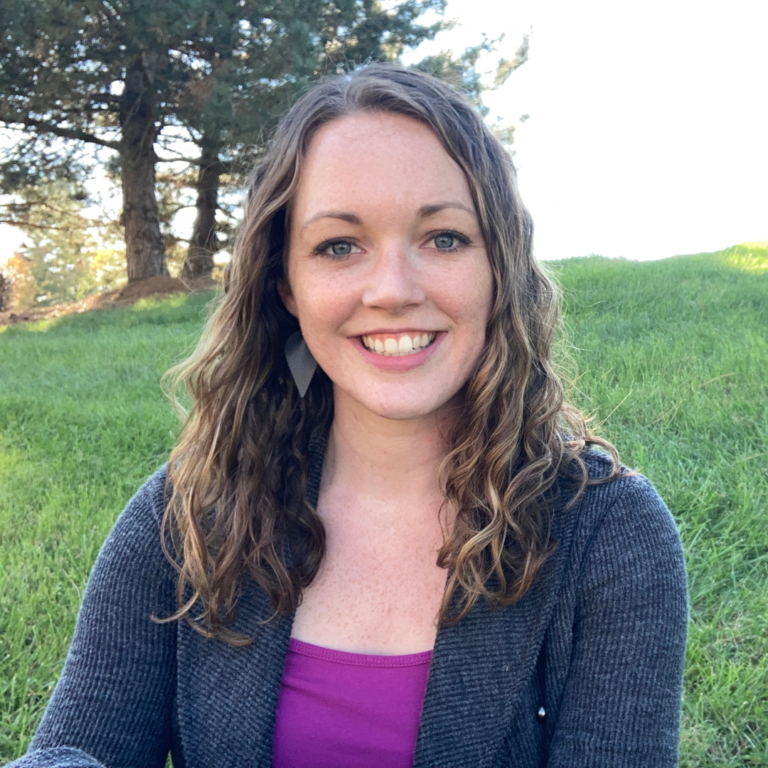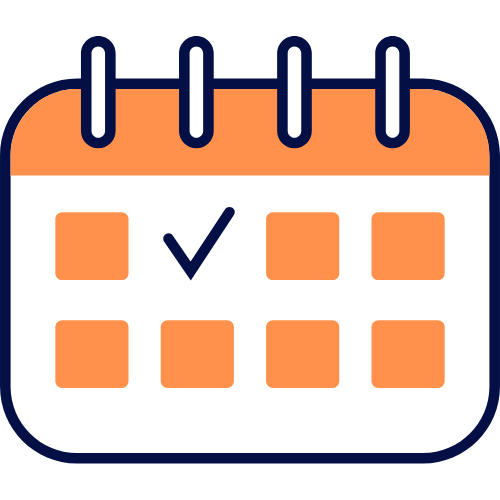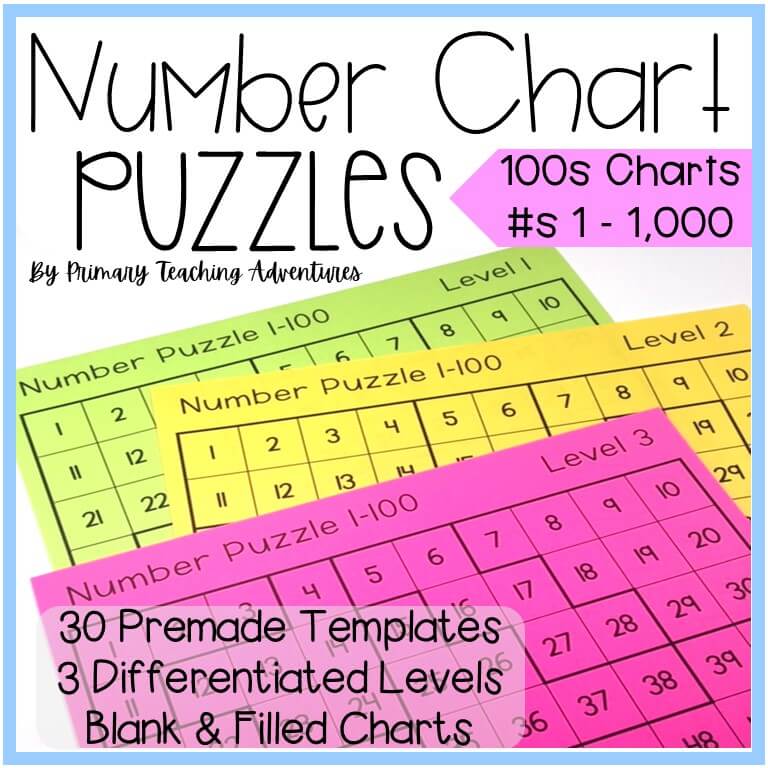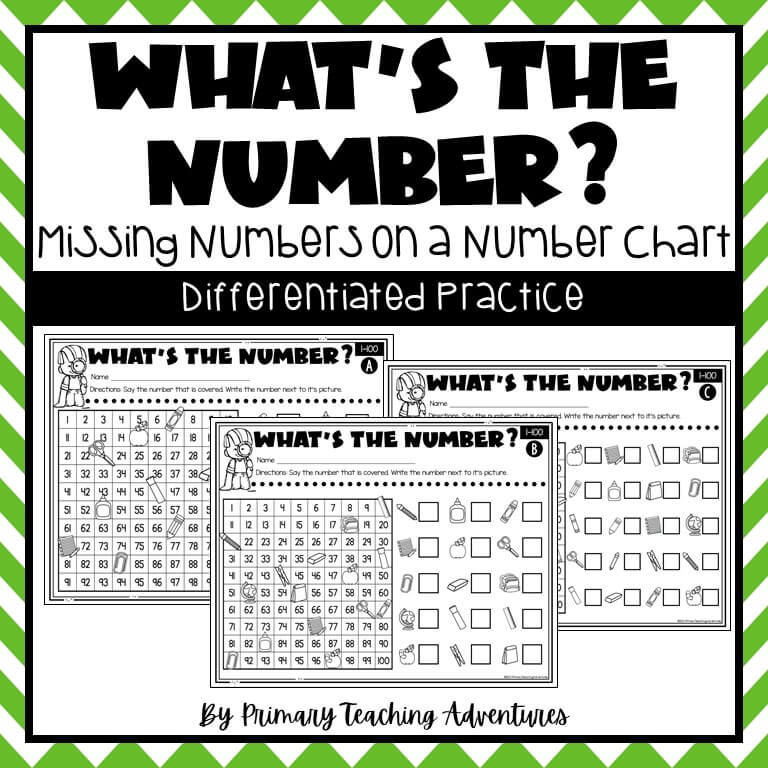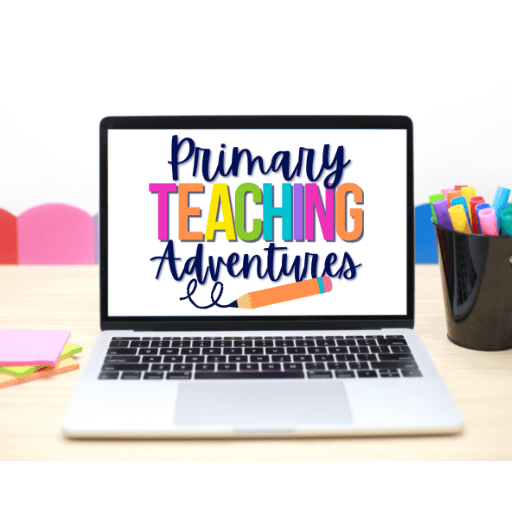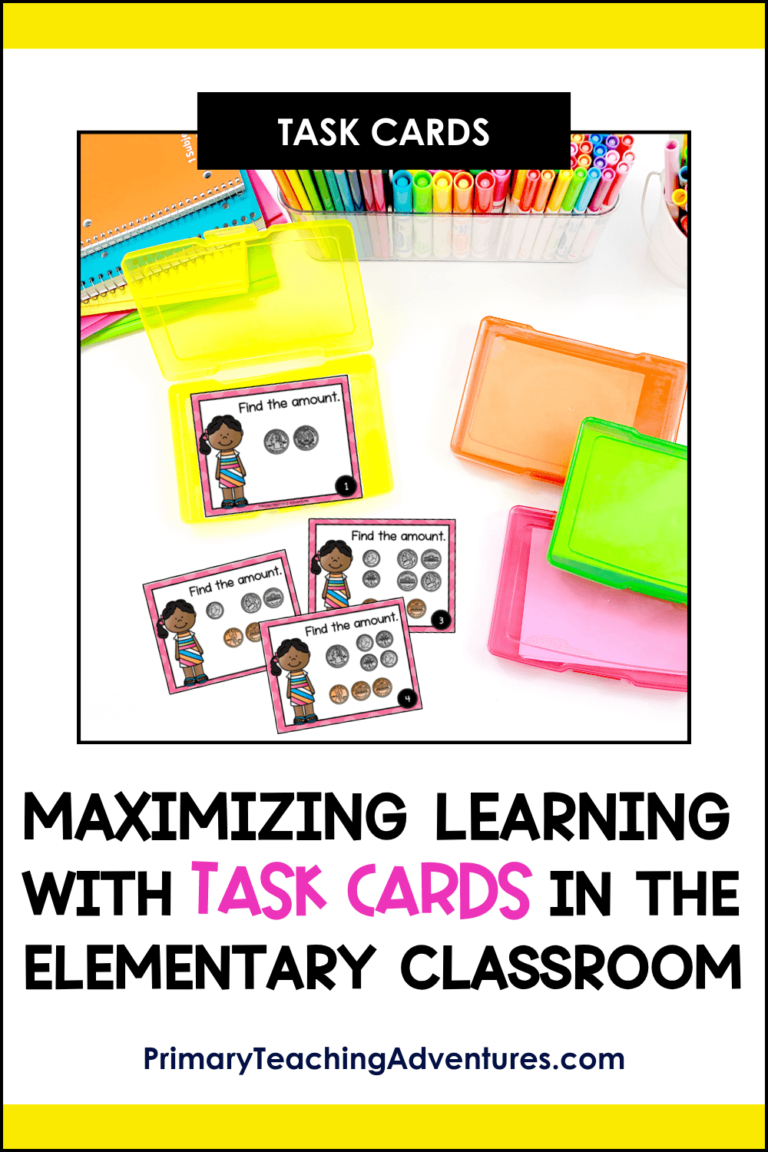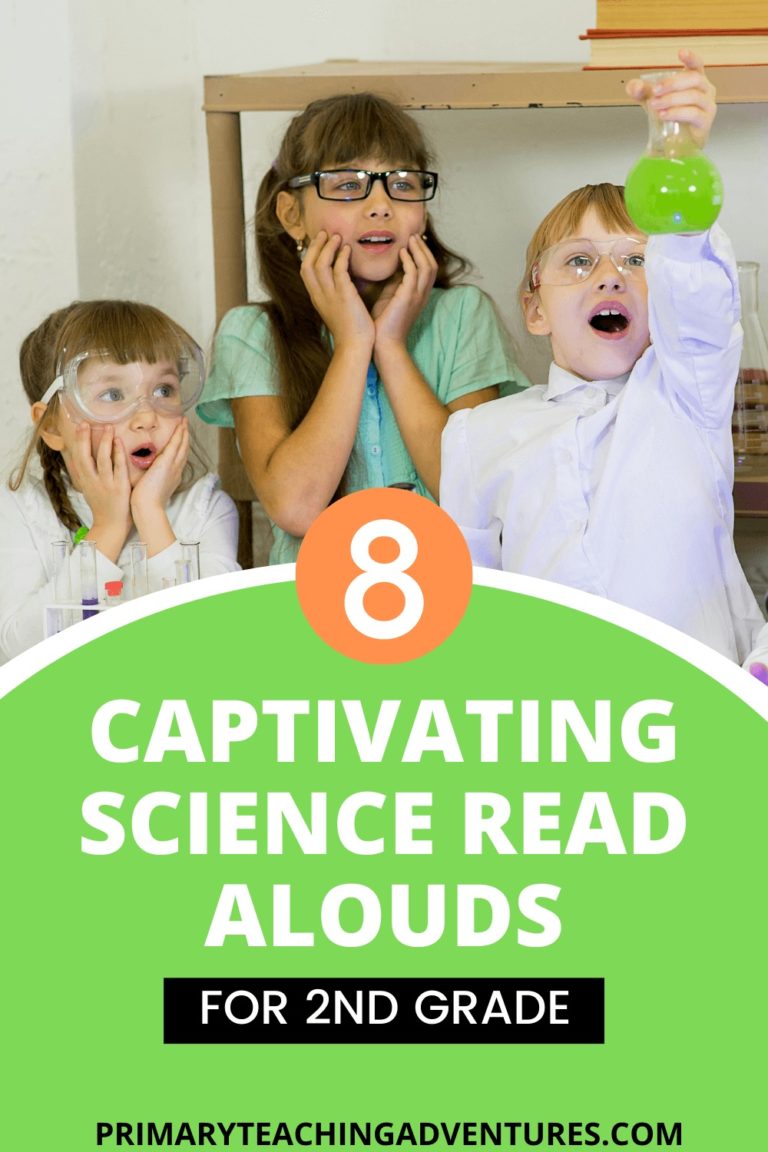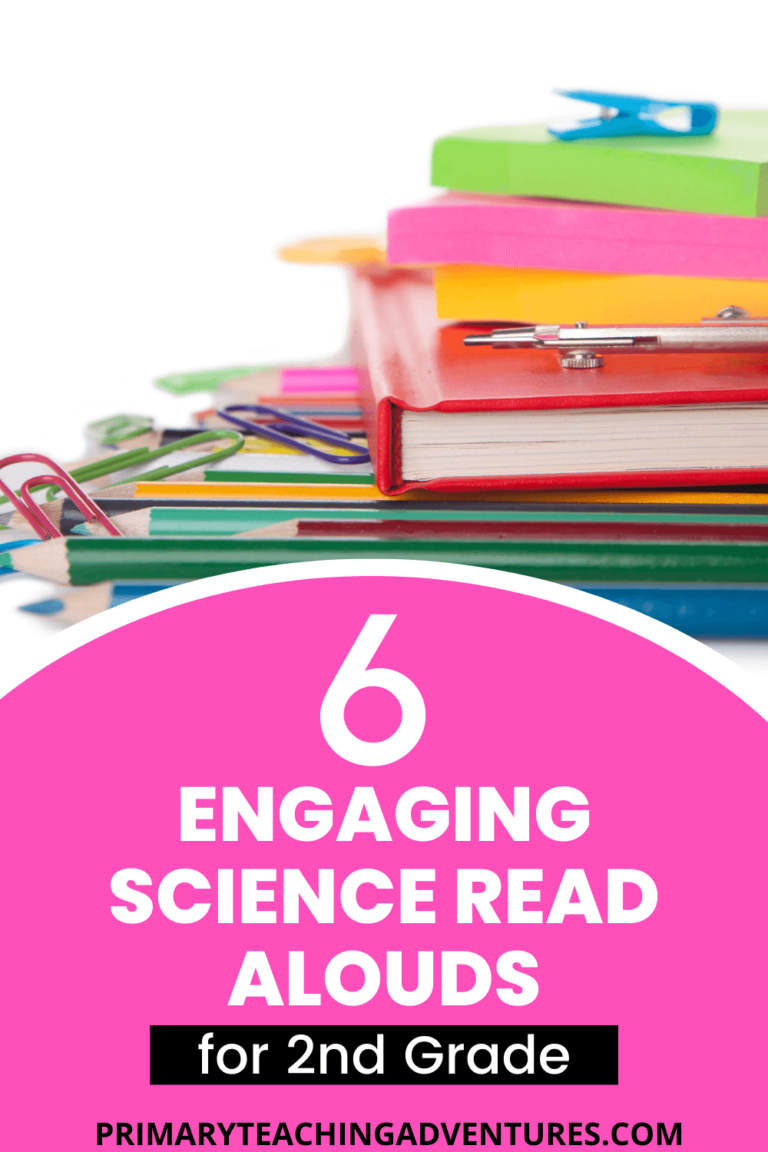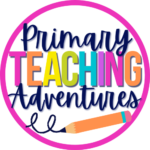
We’ve all been there- there’s no time to teach science. With the intense demand for high performing reading and math test scores, science is one of the subjects that’s kicked to the curb in order to make room for the “important” subjects.
But what really is an important subject?
Research has shown that in order to perform well on reading comprehension tests, a student’s background knowledge is what gets them the correct answer.
And the best way to equip students with the background knowledge they need is through teaching science.
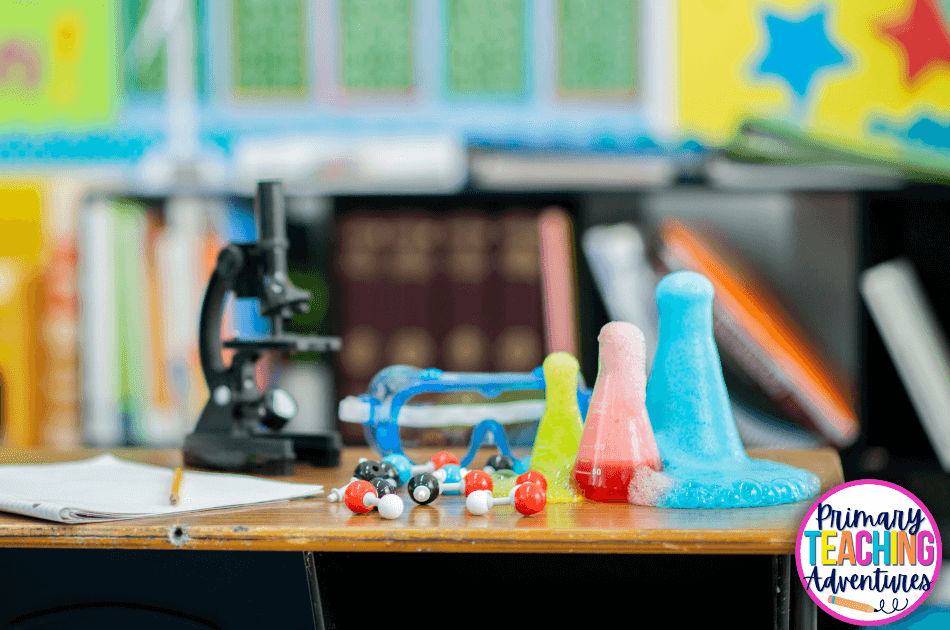
Build Background Knowledge
Studies have shown the importance of building background knowledge. In fact, it’s such a widely known fact that activating prior knowledge is a hook for many lessons.
This issue is that not all children have access to the same quality information.
And that’s where we come in!
We need to provide our students the opportunity to grow in their background knowledge, and teaching science is a great way to do that. Children are already intrigued with scientific topics like animals, severe weather, and life cycles.
And they’re hungry for more! Which means the engagement and interest is already there. We as teachers need to give them resources and guided discussion to help support their curious minds.
Critical Thinking Skills
Humans are naturally curious creatures. So this is the easy part.
I love starting off my science lesson with a curious question and having students give answers about what they think the reason or answer is. You’ll use this initial list as a reference throughout the unit.
As students learn more about the topic, you’ll add more complex concepts to push students to think critically about the topic.
Using analysis models like Text to Self, Text to Text, and Text to World is a great way to get students thinking critically.
Keeping a science journal will also help students organize their learning and critical thinking.

Creative Exploration
Who doesn’t love a hands-on activity?! Science lessons are a great time to get students fully engaged in learning.
You can create an environment that your students can be curious, explore, and learn at the same time. Give your students different opportunities to be curious.
Giving students time to explore will naturally increase their learning. You can do this by giving students different stations with materials that go with your unit.
And don’t let the “I don’t have materials” get in your way.
There are great free science websites like Epic, Mystery Doug, and SciKids Show that will give students what they need to explore.
Also, your student’s parents are eager to help in their student’s learning. Don’t be afraid to send out an Amazon Wish List of the things you need for your science unit.
Learning New Vocabulary
Teaching science expands students’ vocabulary. Knowing what different terms and content-specific vocab is will help students with reading comprehension.
You can help your students learn new words by reading aloud scientific non-fiction texts. As you read, stop to talk about the new words.
Students will retain much more if you do this.
You can also quickly jot down the word or have science content vocabulary words printed so that students can connect the explanation to the new word.
Learning new vocabulary will also help build up that prior knowledge that is needed for testing as your students get into older grades.
It’s just a win-win!

In Summary
So, what does all this mean? It’s time to make time for teaching science.
There’s too much research and evidence that proves you should make it a priority, even if it’s a small amount. Science provides a great opportunity for students to develop critical thinking skills about the world around them.
Giving students a structured creative exploration time with materials and scientific concepts will develop invaluable experiences. Using science to teach new vocabulary will increase students’ reading comprehension that will set them up for a more successful future.
Where can you fit science into your daily or weekly schedule?
